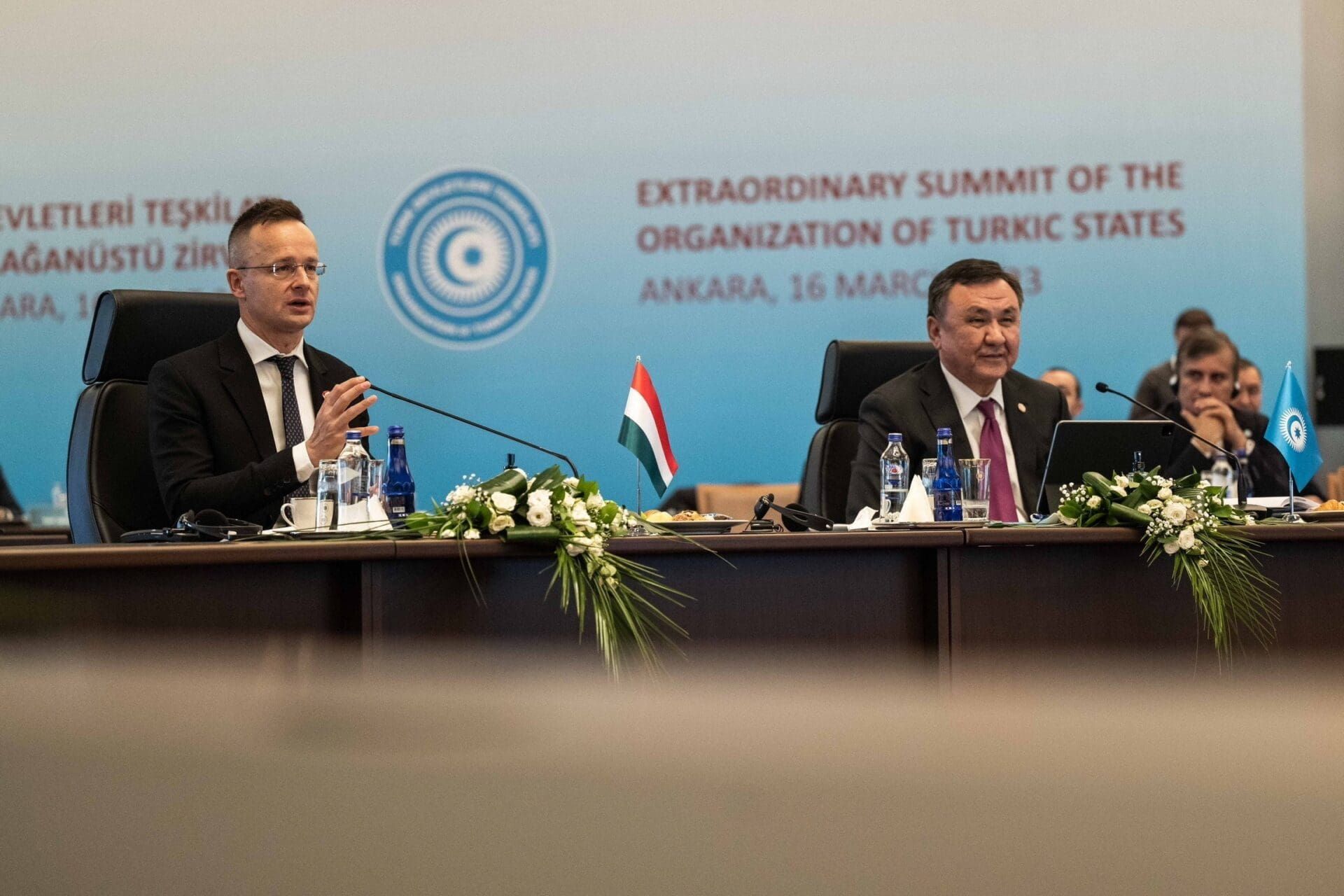Hungary has delivered another 105 tons of medical equipment to Turkey, to help provide care for the injured following the February earthquake, according to Minister of Foreign Affairs and Trade Péter Szijjártó, who made the announcement on Thursday in Ankara, Turkey.
In a statement released by the MFAT, Minister Szijjártó expressed Hungary’s condolences to ‘our Turkish brothers and sisters’ in connection with the recent earthquake at an extraordinary meeting of foreign ministers of the Organization of Turkic States.
‘We have been following the events with concern, praying that as many people as possible would survive this natural disaster. We have done everything in our power to provide the necessary assistance in the most difficult hours,’ he said in his speech.
He also reminded the audience that
167 Hungarian rescue teams had arrived at the scene with 29 search-and-rescue dogs, who were able to save the lives of 35 survivors.
He added that Hungary is also ready to provide assistance in the reconstruction efforts. Also, because such tragedies put enormous pressure on the healthcare system, the Hungarian government sent another 105 tons of medical and healthcare equipment to Turkey following the 1,500 kilograms (3,300 pounds) of medicine sent the previous month. ‘After consultations with Turkish authorities, ventilators, infusion devices, and medicines are included in this large shipment, which all contribute to the successful care of the injured and sick,’ he said.
He emphasised that successful action requires international cooperation, therefore Hungary supports an agreement on disaster management coordination within the framework of the Organization of Turkic States, and wishes to participate in such cooperation.
Szijjártó also touched on the topic of the Ukrainian war, stating that the effects of the armed conflict are direct and extremely severe in the neighbouring country.
‘We want peace. Unfortunately, Hungarian people have already died in this war. We believe that saving human lives is our most important duty now, and human lives can only be saved in peace. That is why we thank the members of the Organization of Turkic States for speaking out in favour of peace. It’s important that as many people as possible do so as loudly as possible because pro-war rhetoric has taken a hold of Europe, and the sounds of the hawkish are very loud. Those of us who want peace need to strengthen our efforts…Let’s not forget that the vast majority of countries in the world do want peace,’
Minister Szijjártó added.
He went on to point out that the world has moved towards bloc formation as a consequence of the war, which is an unfortunate development and goes against Hungarian interests.
‘We believe in connectivity, relationships, and cooperation based on mutual respect. I think the Organization of Turkic States is an excellent example of all this because it includes Caucasians, Central Asians, and Europeans, and we all know how to cooperate with respect,’ as he put it.
Finally, the minister noted that the creation of the Turkic Investment Fund is a good expression of this sentiment, in which Hungary also wants to participate, as this will take economic and trade cooperation to a higher level.
‘Moreover, this investment fund can generate resources to carry out the necessary infrastructure developments for our energy security in this region. It has become clear that Hungary’s diversification of its energy supply is not possible without cooperation with the Turkic states,’ Szijjártó emphasised.








